
About This Quiz
When was the last time you heard someone say they had to go to the doctor? You probably didn't question them (or maybe you thought better of it). The fact is, not all doctors are created equal. No, we don't mean one is "better" than another! But simply put, there are so many quirks in our human anatomy, it's not possible for one doctor to understand them all! Think of it: The human body has 11 different organ systems, ranging from circulatory to digestive. There are roughly 206 bones from the top of your head to the tips of your toes. Those bones are complemented by 600 muscles, 32 teeth and 78 organs, each with their own functions! Phew, it's a lot to keep up with.
No doubt, aspiring doctors spend a great deal of time studying and preparing to become the trusted medical resources you look to when you schedule an appointment. Many hours hitting the books, doing rounds, participating in clinical rotations and learning about the body eventually translate into an M.D. or D.O. and an associated -ologist or other designation to go along with it.
But just how many of those specialties do you know? If you sprain an ankle in a pick-up basketball game, do you need a radiologist or a gerontologist? (For some of us, maybe both!) If you have an earache, a stomachache or a backache, what type of medical professional are you seeking out?
Test your expertise in this quiz by matching medical conditions to the doctors who treat them. Sorry, you don't get to write any prescriptions!

Immunologists, also sometimes referred to as allergists, help to diagnose and treat conditions that impact the human body's immune system — see part of the word "immune" right in the job title? Immunologists may see patients with symptoms of allergies, celiac disease, asthma, lupus and other autoimmune disorders.

The title of "cardiologist" is literally taken from the Greek word "kardia," which means heart, combined with "-ologist," to give us the name of someone who studies the heart. Cardiologists see patients for heart-related matters, including heart attacks, hypertension and arrhythmias.

Dermatologists are noted for their expertise in dealing with all manner of skin disorders, ranging from acne and eczema to suspicious-looking moles. And don't even get them started on tanning beds! They're not fans.
Advertisement

In short, an endocrinologist specializes in the functioning of the body's endocrine system. The endocrine system includes glands and organs that help moderate things like insulin. Individuals with diabetes have trouble with insulin, either resisting it or not producing enough.

Hematologists specialize in disorders that impact the blood circulating in the body, as well as disorders of the lymphatic system and the spleen. Anemia, more specifically, occurs when a person's blood is deficient in red blood cells that carry oxygen throughout the body.

A gastroenterologist is well-qualified to handle issues related to the stomach and digestive organs. So, if you're experiencing symptoms such as pain in your abdomen, diarrhea, ulcers and the like, a trip to the gastroenterologist's office is probably in your near future.
Advertisement

You won't frequently need to consult with an infectious disease specialist unless you have a recurring infection or one that appears resistant to traditional lines of treatment. Your general practitioner may refer you to this specialist for additional testing.

Diseases and disorders of the nervous system are the specialty of doctors who pursue a neurology specialty. They see patients who have been diagnosed with disorders that impact the brain, nerves and spinal cord, such as Parkinson's, Alzheimer's and epilepsy.

Women everywhere, rejoice. Only you are treated to at least yearly visits to the gynecologist from early in your teenage years to well after menopause. Gynecologists handle reproductive health issues for the ladies.
Advertisement

Oncologists help treat various diagnoses of cancer and coordinate care of patients alongside surgeons and radiation therapists. Treatment for cancer typically involves chemotherapy, radiation and/or surgery, requiring the involvement of many different medical professionals.

Of course, you don't typically tell people you're going to the ophthalmologist; rather, you probably say you're going to the eye doctor. An ophthalmologist is skilled not only in prescribing glasses or contacts to treat near- or farsightedness, but also in treating conditions of the eye, such as glaucoma.

Otolaryngologists are frequently called ENTs or ENT physicians for the areas of the body they treat — the ears (E), nose (N) and throat (T). Otolaryngology is sometimes referred to as the world's oldest medical specialty.
Advertisement

Whether issues with your feet and ankles are a symptom of another condition or an impairment all on their own, podiatrists are up to the challenge. The origin of the word "podiatrist" comes from the Greek "pod," which means "foot," and "-iatrist," which means "healer."

There's no stigma attached to mental illness, either. Psychiatrists treat a variety of emotional, mental and addiction disorders in patients of all genders, ages and socioeconomic stations. Psychiatrists are trained as medical doctors, so they can also prescribe medications.
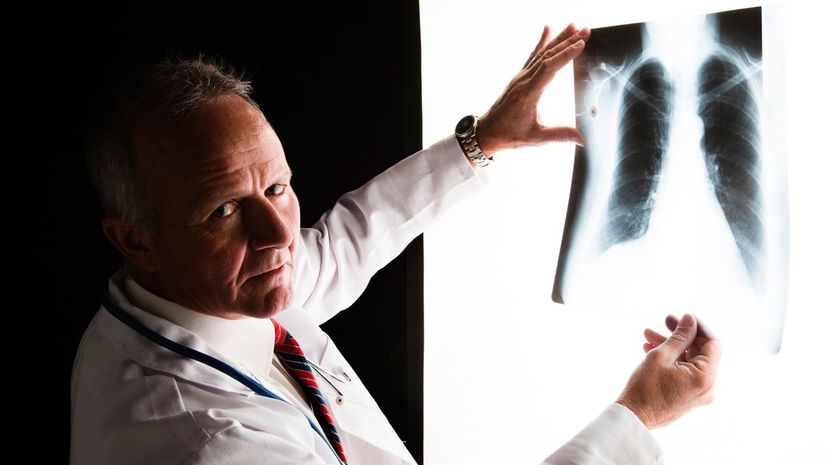
Pulmonologists diagnose and treat disorders of the lungs, such as pneumonia, emphysema, asthma and COPD. They are also qualified to treat conditions of the respiratory system, including everything from your nose to your trachea and larynx.
Advertisement

Rheumatologists are doctors schooled in the understanding of pain and arthritis that can affect an individual's bones, muscles, tendons and joints. If you have anything from tendinitis in your elbow to chronic fibromyalgia, this specialist can help!

Urologists deal, privately, with your private areas — your urinary tract and its accompanying disorders, to be exact. Urologists can treat both men and women for everything from bladder problems to prostate cancer.
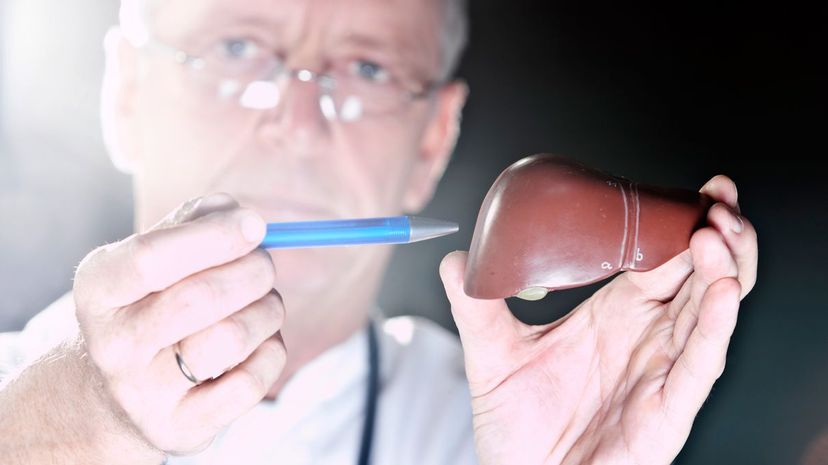
Hepatologists specialize, primarily, in the diagnosis and treatment of hepatitis, but that's not all they do. These physicians may also be sought out by patients dealing with other conditions related to the liver, gallbladder or pancreas.
Advertisement

It only stands to reason that a newborn who needs to spend time in the neonatal intensive care unit (NICU) might be treated by a neonatologist. These medical experts help diagnose and treat health problems newborns and premature infants may experience.
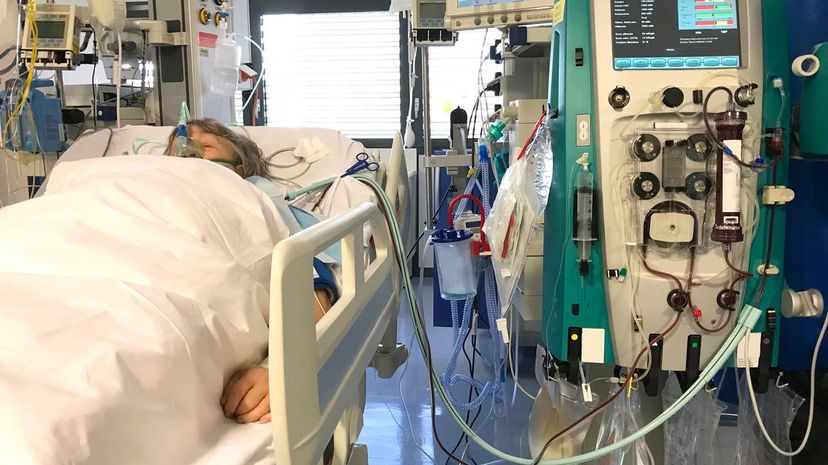
Nephrologists diagnose and treat patients with kidney disorders, commonly referred to as renal problems. A specialist in this area may treat chronic kidney diseases, renal failure and even kidney stones.
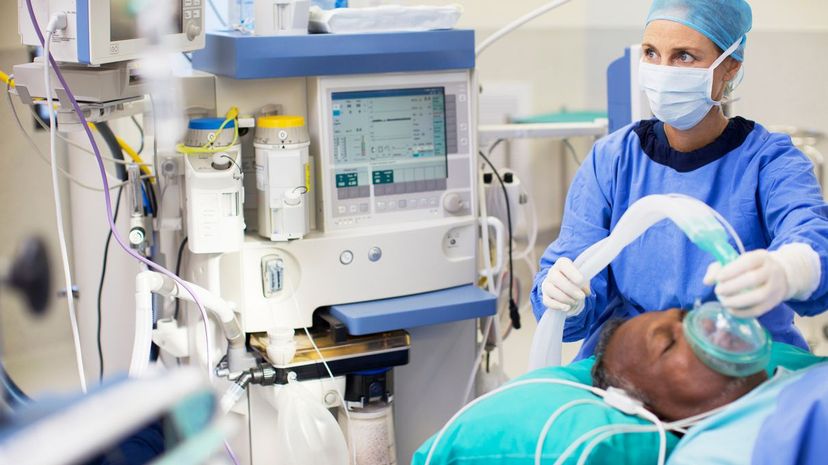
Three cheers for anesthesiologists, who administer anesthesia and sit by you while you're under said anesthesia during surgical procedures. They're keeping close watch over your vital signs while also, well, knocking you out.
Advertisement

This might have been an easy question since the word "audio" is synonymous with hearing. Audiologists are concerned with your ability to hear. Also, they treat a variety of conditions, from tinnitus to ear disorders that can impact your balance.

Epidemiologists are studious medical professionals, no doubt! If there were a zombie outbreak, these experts would be useful to have in the humans' corner because they study how diseases are transmitted and spread. (The "double tap" is still a good idea, though.)

Pediatricians must be well-trained in a variety of illnesses and conditions that can crop up in their child patients. For many families, one pediatrician will watch their children grow from birth until well into their teenage years.
Advertisement
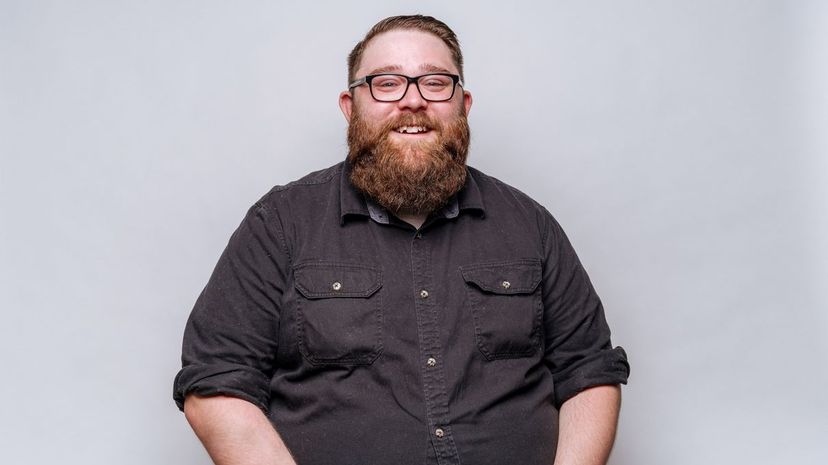
Bariatricians, sometimes called bariatric physicians, help individuals who may be carrying too much weight lose the extra pounds. They also treat conditions that can arise as a result of being overweight.

Did someone say "emergency"? Emergency medicine specialists are employed by emergency departments of hospitals to treat a wide variety of critical incidents, including injuries sustained in a car accident.
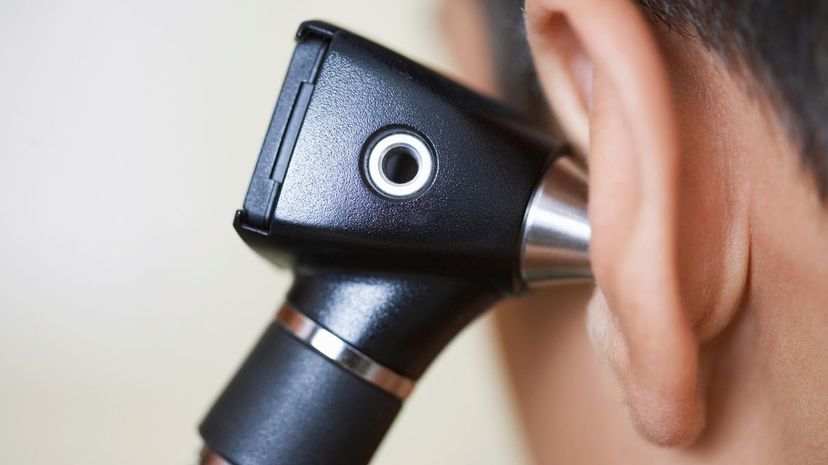
Apparently, an otolaryngologist with more training earns a shorter name — otologist! These professionals have extra expertise in how to diagnose and treat things like dizziness and tumors.
Advertisement
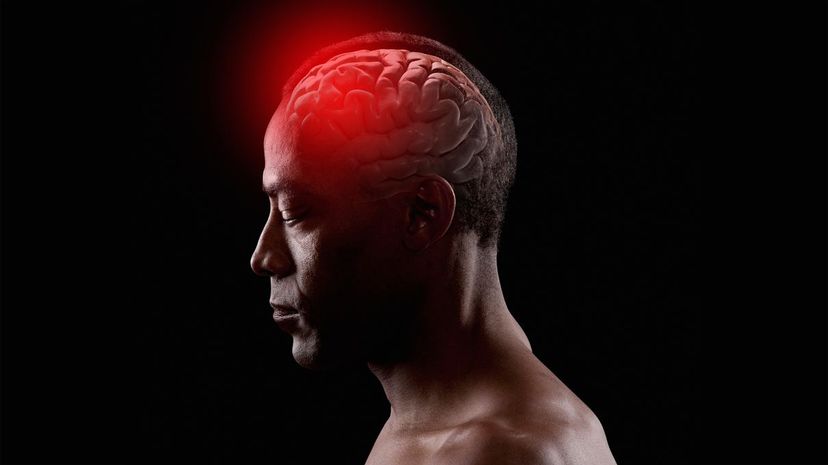
Vascular surgeons are those who deal entirely with surgery where arteries and veins are involved. These specially trained surgeons may treat everything from aneurysms to carotid artery disease, among other conditions.

You don't have to be a professional athlete to require the services of a medical expert known as a sports medicine specialist. Physicians in this field (no pun intended!) treat injuries, and they work to help prevent them as well.

We may think of plastic surgeons as being accessible only to celebrities trying to make some part of their bodies bigger or smaller, but regular people have these procedures too. These medical doctors also perform reconstructive procedures to assist those who have been disfigured in some capacity.
Advertisement

It's true! Dentists are doctors too. The degree they receive, either a Doctor of Dental Surgery (DDS) or Doctor of Dental Medicine (DMD), earns them the well-respected "Dr." title. Think of dentists as doctors for your teeth!

Did you know that radiologists are considered doctors? These medical professionals are trained in diagnosing a variety of medical conditions by using imaging equipment. They work with x-rays, MRIs and more.

An osteopath or osteopathic physician is one who earns a Doctor of Osteopathic Medicine (D.O.) in school. They focus on many of the conditions regular M.D.s treat, but with a more holistic approach.
Advertisement

There's nothing less professional about a hospitalist. They're simply a medical doctor who chooses to treat patients who are in the hospital. The term "hospitalist" has only been in popular usage for the past decade or two.

Physiatrists are trained in treating injuries to the neck and the back. These types of impairments are typically brought on by sports injuries or accidents. Physiatrists, also known as physical medicine and rehabilitation physicians or PM&R physicians, are equipped to diagnose and treat these conditions.